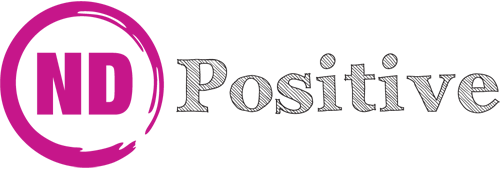 Genius Within CIC is a social enterprise established by Dr Nancy Doyle in 2011 to help neurominorities maximise their potential and work to their strengths. We strive for a future where all neurodiverse/neurodivergent thinkers with challenges at work, in education, or in custody, receive the diagnosis, coaching and support that they need to thrive. Our work seeks to unlock their talents, whilst acknowledging and celebrating that this diversity forms part of the rich tapestry of human experience.
Genius Within CIC is a social enterprise established by Dr Nancy Doyle in 2011 to help neurominorities maximise their potential and work to their strengths. We strive for a future where all neurodiverse/neurodivergent thinkers with challenges at work, in education, or in custody, receive the diagnosis, coaching and support that they need to thrive. Our work seeks to unlock their talents, whilst acknowledging and celebrating that this diversity forms part of the rich tapestry of human experience.
The BBC2 series, Employable Me and now Employable Me 2 has featured our work with disabled jobseekers as they prove that disability should not be a barrier to employment.
As a company actively championing the rights of neurominorities, it is only fitting that we are a Disability Confident Leader.
We Believe that everyone has the right to understand and be understood.
Our Mission
We want to help unlock everyone’s full potential through technology.
Our vision
We see a world where difference, disability or language are no longer barriers.
Bua provides free training for disabled and neurodiverse people to enter salaried employment.
The training has no sign-up requirements (you just need an email address). All the instructors have lived experience of disability and/or neurodiversity, and all the courses are in accessible formats. Everything is flexible so you can work as fast or slow as you like.
We’re here to support autistic people into sustainable and fulfilling employment.
Our mission is to support autistic people to have fulfilling and productive working relationships in inclusive and positive environments. We do this by:
Enabling autistic people to find and be successful in suitable work
Encouraging providers of work to employ autistic people and recognise the benefits they can bring to the workplace.
The Centre for Neurodiversity at Work undertakes cutting edge research to enhance and support ethical, impactful organisational practice. We do this through fostering collaborations between scientific research and psychologists in practice, influenced by the priorities of neurominority employees.
The Centre for Neurodiversity at work is led by Birkbeck’s Department of Organizational Psychology and Genius Within CIC. These two organisations currently operate in partnership, through sponsored employee doctoral research programmes and providing field research opportunities.
The Department of Organizational Psychology regularly publishes high quality research in the area of occupational neurodiversity.
Genius Within CIC is an award-winning social enterprise, with a decade of experience in consulting with business leaders, teams and individuals on neuroinclusion as well as working in criminal justice and unemployment, where complex marginalization and trauma compound occupational exclusion.
At Exceptional Individuals, we pride ourselves on having a neurodiverse team. Over half of our staff are neurodivergent, with a range of neurodivergence, from ADHD, to Autism, to OCD! We see our neurodivergence as a unique selling point, that allows us to thrive, and allows us easily to be empathetic with the people we work with.
Simply put, Diversita is an organisation that has a passion and mission to advise and empower Neurodivergent Technology professionals in seeking the right career opportunities.
Equally so, we have a focus on guiding and assisting organisations to identify not only how to hire talented people but to see how they can improve the application , interview and onboarding process for Neurodivergent candidates.
Startups need you!
Being an entrepreneur or self-employed is Plan A for many ADHDers. We need variety, constant newness and all the dopamine hits!
Startups need our creativity to drive innovation. To solve skill gaps and support to shape neurodiverse workforces
We’ve found a way so we all win
 Growing up, I understood that my Father and Brother were ‘different’. Why did they feel so uncomfortable in new situations, with new people and doing different things? Later, my Mum told me that they were autistic and dyxlexic. For a long time, these words didn’t mean much to me. During my time at University, I developed an interest in understanding what they were, how it affected people like my dad and brother. I soon learnt that my brother and father weren’t alone, especially in their struggles to find employment.
Growing up, I understood that my Father and Brother were ‘different’. Why did they feel so uncomfortable in new situations, with new people and doing different things? Later, my Mum told me that they were autistic and dyxlexic. For a long time, these words didn’t mean much to me. During my time at University, I developed an interest in understanding what they were, how it affected people like my dad and brother. I soon learnt that my brother and father weren’t alone, especially in their struggles to find employment.
After doing research during as a student, I learnt that over 15% of the world’s population are neurodiverse, to which over 60% of all autistic adults in the UK were unemployed. This represented a staggering 500,000 people, with lots of talent, skills, and a collective desire to get a job. These people had 2.8 million relatives between them, who were just like me! This, as well as my business interests meant I had a passion to help, in any way I could, which was when Enna (formerly Stack) was born.
Our teams include fully-trained personnel specializing in software development, data analysis, quality assurance and testing, automation engineering, and more. auticon works hand-in-hand with our clients and the local autism community. We encourage diverse work cultures, recognize each employee for their individual talents, and deliver outstanding quality to our customers.
Universal Music UK has published the first handbook for embracing neurodiversity in the creative industries at a launch event at its King’s Cross offices.
Neurodiverse (ND) and neurodiversity refer to the infinite variation in cognitive functioning that can lead to differences in thinking, attention and memory.
The handbook, which is titled Creative Differences, explores the experiences of people with specific facets of neurodiversity such as ASD, ADHD, dyslexia, dyscalculia, dyspraxia and Tourette Syndrome. It has been guided throughout by people with lived experiences and key organisations working in the field.
The handbook highlights that while nearly all creative companies recognise the value of neurodiversity in the workplace only very few have ND-friendly policies and practices in place. It goes on to provide a range of practical solutions companies can adopt to make their workforces more accessible in areas including recruitment, mentorship and career progression. Specific recommendations include neurodiversity awareness education for all employees, providing flexibility around the job application process and also some less obvious suggestions such as a buddy system to help new recruits better understand unwritten social rules.
Building neurodiverse talent pools with diverse employers. Neuropool connects talent pools of neurodiverse individuals to diverse employers through career development, skill matching and working with academic institutions.
Specialist Career Coaching is career coaching that has been tailored for those who are neurodivergent and who need a more personalised and person-centred approach to their programme of coaching. During a programme of career coaching, our experienced career coaches will work with individuals to help them find a career that they love and one that is aligned to their strengths.
The coach will also provide suggestions of coping strategies that can make the process of applying for a new job less challenging. All of our career coaching programmes use a bespoke approach based on the needs of the individual and their specific challenges.
Connections in Mind are Executive Function Coaching Specialists, helping Students and Adults develop key skills through our expert approach to coaching. Executive functions are the basic skills of self-management that allow people to live a healthy and fulfilling life. Connections in Mind are executive function specialists and our coaches work with and support students, adults and teaching professionals to work more effectively, to develop confidence and to encourage sustainable success in educational, professional and daily life.
Complementary Cognition – the evolution of complementary cognition.
The theory of Complementary Cognition explains how humans evolved to specialise neurocognitively in different but complementary ways of searching for information that work together as a complex adaptive system. This may be key to understanding our species’ exceptional capacity to adapt through behavioural and technological adaptation.
As a consequence of specialisation, our species most effectively adapt as groups made up of individuals with complementary cognitive abilities. The huge advantage of this is that it enables our species to adapt much faster and more flexibly. Such adaptiveness lies at the heart of our species’ success.











